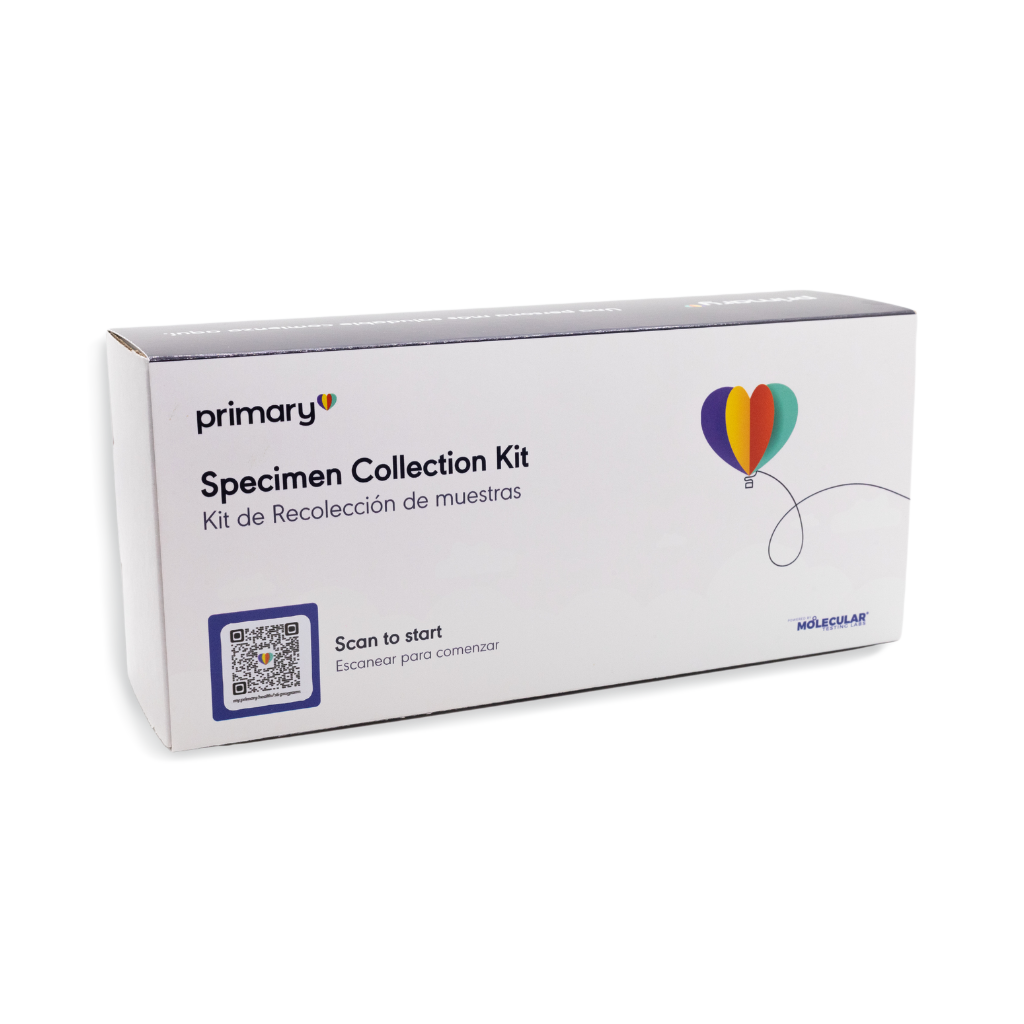Search

About At-home Chlamydia and Gonorrhea Test Kits (3-site CT/GC)
Test for both Chlamydia and Gonorrhea (CT/GC) with a discreet 3-site sample.
This page covers CT/GC FAQs and how-to videos for vaginal, oral, and rectal testing. Send us a note if you are interested in group ordering for your program.
Send us a note to chat about:
Group ordering
Program support
Using the Primary platform to facilitate clinic workflows or lab results
And more
Intended for informational purposes only
Common Questions and Answers
What you can generally expect from ordering test kits
FSA/HSA eligible
At-home 3-site test for urine, oral swab, rectal swab
Discreet packaging delivered to you
Results in under 5 days
Live chat and email support
Free follow-up with a clinician for all positive results
Treatment options
Digital care coordination
Member Login
Reasons to test for Chlamydia and Gonorrhea (CT/GC)
About Chlamydia and Gonorrhea
Chlamydia and gonorrhea are common sexually transmitted diseases (STDs) that are caused by bacteria.
An overgrowth of the bacteria chlamydia trachomatis causes chlamydia, while gonorrhea is caused by an overgrowth of the bacteria neisseria gonorrhoeae.
Some people with chlamydia and gonorrhea may not have symptoms. Others may recognize the telltale symptom of both: a burning sensation when you pee.
Both chlamydia and gonorrhea can be spread through vaginal, anal, or oral sex, even if nobody is having symptoms and nobody ejaculates.
Both STIs may lead to infertility both in men and women or serious health issues to a newborn baby. So if you’re trying or expecting, it’s important to get tested and treated.
The good news is that chlamydia and gonorrhea is preventable and treatable: they’re both effectively treated with antibiotics, and regular testing keeps you and your partner(s) safe.
Why test?
While chlamydia and gonorrhea are easily spread, it is easy to test and treat them both.
- A test for two in three places: Chlamydia and gonorrhea, sexually transmitted diseases that frequently affect people at the same time.
- Test for Chlamydia (CT) and Gonorrhea (GC) in the genitals, throat, or rectum using a Chlamydia and Gonorrhea (CT/GC) test kit.
Chlamydia and gonorrhea test kit
Designed for:
- Anyone sexually active 18 years and older.
Chlamydia and gonnorhea FAQs
Questions and Answers about Chlamydia and Gonnorhea
Frequently Asked Questions
Have more questions? Contact us at support@primary.health
3-sites: Vaginal, oral, and rectal
How to use your Chlamydia and Gonorrhea (CT/GC) 3-site test kit
Site 1 example: Vaginal swab
Site 2 example: Oral swab
Site 3 example: Rectal swab
Clinical Leadership
Aditya Chandrasekhar, MD, MPH, FACP
Medical Director
He is triple board certified (internal medicine, pulmonary medicine, and critical care). He completed his medicine training at Georgetown University while doing his MBA at Johns Hopkins, followed by training in pulmonary/critical care at the Cleveland Clinic. He has published extensively in clinical medicine, health economics, and digital health, and has presented nationally and internationally on the same. Dr. Fadul also serves on the Board of Directors for MedWish International and leads medical missions overseas.
Rafid Fadul, MD, MBA
Primary.Health Medical CEO and Clinical Advisor
Katie Kowals, RN, BSN
Registered Nurse











